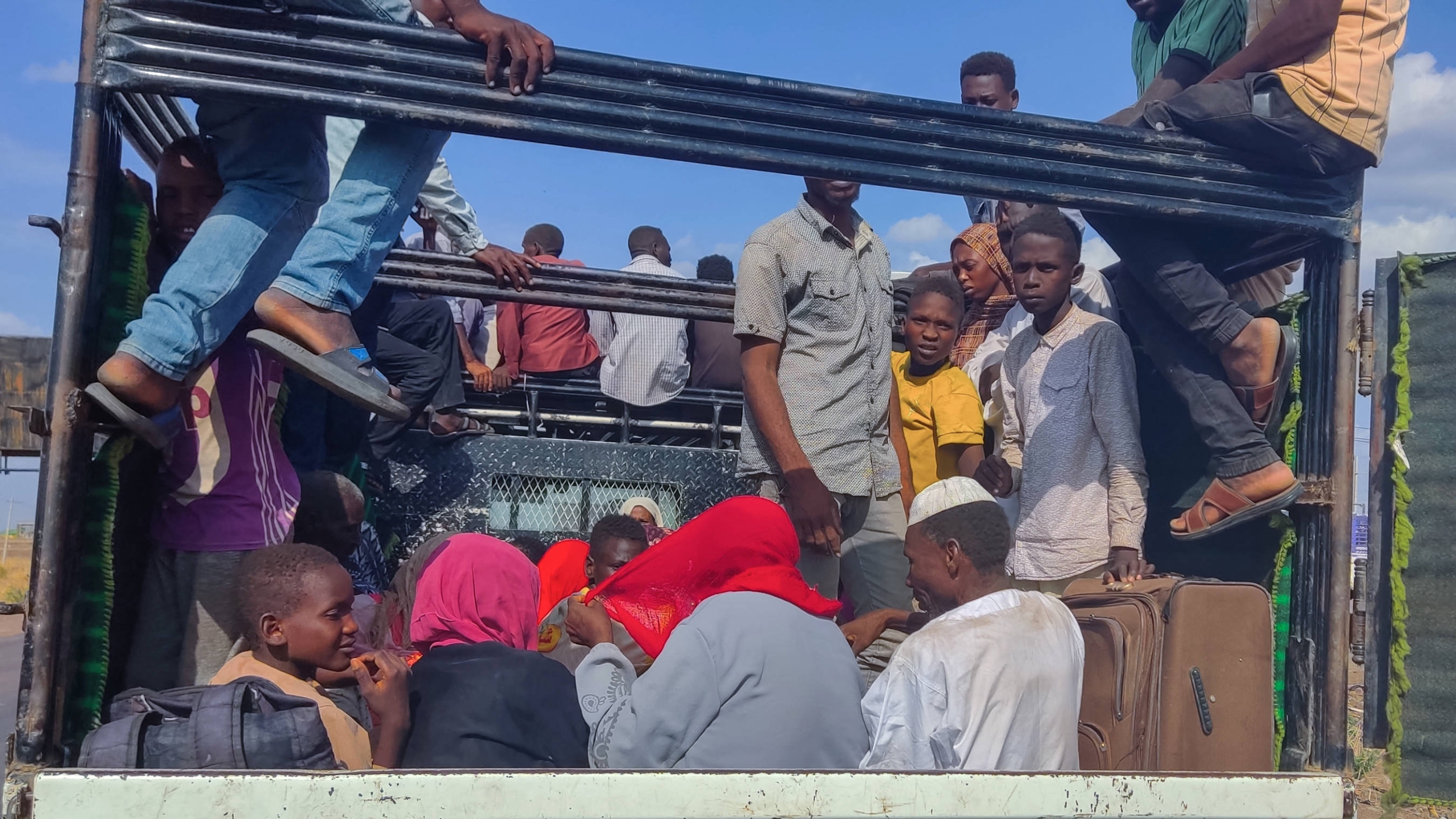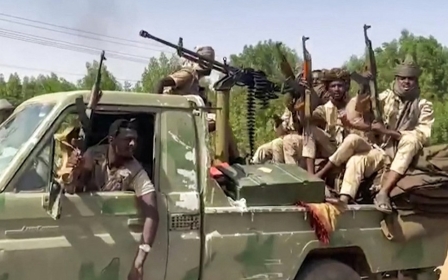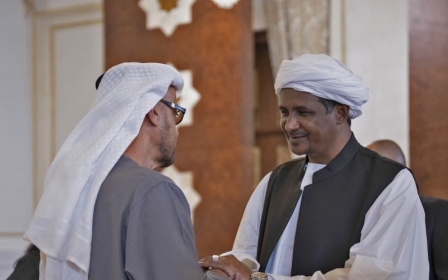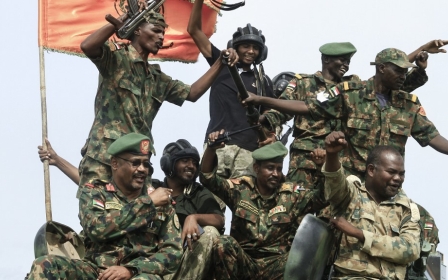Sudan: Hundreds of families flee intense fighting near Khartoum

Hundreds of families fled a northern suburb of Sudan's capital Khartoum on Saturday after fighting between the army and paramilitary forces intensified around a key military base.
The Rapid Support Forces (RSF) paramilitary on 4 September launched an attack on the Hattab base in Khartoum North, also known as Bahri, which had been under army control since the start of Sudan’s civil war in April 2023.
Artillery fire from the army targeted the southern area of the Hattab base while military aircraft flew overhead, a resident in the area told AFP.
RSF forces meanwhile attacked residential areas south of the base, killing and abducting civilians, the resident added, without specifying a number.
Hundreds of families fled on foot with their belongings towards the north.
New MEE newsletter: Jerusalem Dispatch
Sign up to get the latest insights and analysis on Israel-Palestine, alongside Turkey Unpacked and other MEE newsletters
The ongoing conflict between the army and the RSF has left tens of thousands dead and has displaced over 10 million people, with many seeking refuge in neighbouring countries, according to UN reports.
On Friday, UN experts called for the immediate deployment of an independent force to safeguard civilians amid the severe humanitarian crisis.
“Sudan's warring parties have committed an appalling range of harrowing human rights violations and international crimes, including many which may amount to war crimes and crimes against humanity,” the UN's Independent International Fact-Finding Mission for Sudan said in its first report.
Those violations included indiscriminate air strikes and the shelling of schools, hospitals, communication networks and water and electricity supplies.
Both parties had targeted civilians in attacks, as well as through rape and other forms of sexual violence, arbitrary detention and torture.
Middle East Eye delivers independent and unrivalled coverage and analysis of the Middle East, North Africa and beyond. To learn more about republishing this content and the associated fees, please fill out this form. More about MEE can be found here.




